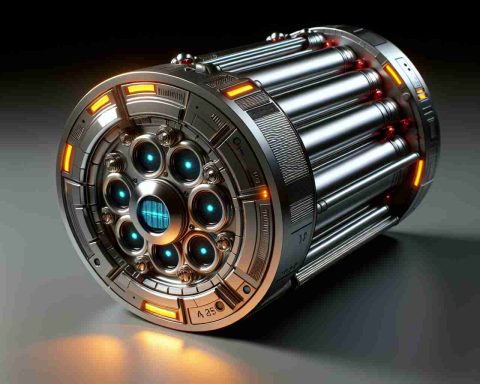Merger Talks Between Honda and Nissan Signal Industry Transformations
In a groundbreaking move, Honda and Nissan have initiated discussions about a potential merger aimed for completion by 2026. This strategic partnership could catapult the two companies into becoming the third-largest automaker globally.
As both enterprises confront unprecedented challenges in the automotive landscape, merging could enhance their competitive edge. The auto industry is currently experiencing a significant paradigm shift towards electric vehicles while simultaneously facing fierce competition from emerging Chinese manufacturers.
Chinese automakers like BYD and Nio are dramatically altering the market dynamics, previously dominated by brands such as Honda and Nissan. These companies not only produce vehicles at lower costs but have also captivated consumers with their advanced electric technologies and superior software offerings. Their influence is becoming evident, especially as China seizes the title of the world’s top auto exporter, surpassing Japan.
In North America, the rivalry intensifies. Nissan has recently faced declining sales, prompting the company to reduce its workforce by 9,000 jobs. Although Honda continues to perform relatively well, it too has encountered profit challenges, particularly in the Chinese market. Industry experts foresee a wave of consolidations in the global auto market as manufacturers strive to survive against the backdrop of increasing competition from China. The ongoing evolution may spell the end for some brands unable to adapt in this rapidly changing environment.
Honda and Nissan Merger: A Game-Changer for the Auto Industry
Merger Talks Between Honda and Nissan Signal Industry Transformations
In a groundbreaking development, Honda and Nissan have initiated discussions regarding a potential merger, aiming for completion by 2026. This strategic alliance could position these two automotive giants as the third-largest automaker worldwide, significantly altering the competitive landscape of the industry.
Features of the Potential Merger
1. Enhanced R&D Capabilities: Merging could facilitate a shared resource model, driving innovation through combined research and development efforts in electric vehicles (EVs) and autonomous driving technologies.
2. Economies of Scale: The alliance may result in cost savings through streamlined production processes, allowing both companies to produce vehicles more efficiently while reducing overall expenses.
3. Global Market Penetration: By combining their strengths, Honda and Nissan could enhance their market presence in regions like North America, Europe, and Asia, competing more effectively against emerging players.
Pros and Cons of the Merger
Pros:
– Stronger Competitive Position: A merger could provide a stronger foothold in the EV market and counteract competition from fast-rising Chinese automakers.
– Cross-Collaboration: Opportunities for shared technology and platform development may lead to innovative new vehicle models.
– Improved Financial Health: The merger could stabilize both companies’ finances amid declining sales and market pressures.
Cons:
– Cultural Integration Challenges: Merging corporate cultures can be difficult and may lead to internal friction.
– Job Losses: As part of cost-saving measures, job redundancies may occur, further straining public relations.
– Market Uncertainty: Unpredictable market reactions and regulatory challenges could complicate the merger process.
Insights and Market Analysis
As the automotive sector pivots towards electrification and advanced technologies, the Honda-Nissan merger reflects a broader trend of consolidation within the industry. With increasing competition from companies like BYD and Nio, which excel in both cost-efficient manufacturing and technology, traditional players are compelled to adapt or risk obsolescence.
Security Aspects and Sustainability
In light of current global concerns regarding data security and environmental impact, the merger may pave the way for enhanced security protocols in vehicle software and sustainable production practices. The collaboration could also focus on developing greener technologies, aligning with global sustainability trends.
Future Predictions
Experts predict that if the merger goes through, Honda and Nissan could not only improve their market standing but also inspire further industry consolidations. As the competition from Chinese automotive manufacturers intensifies, more manufacturers may seek strategic partnerships to ensure survival in this rapidly evolving market.
For more information on the automotive industry’s evolving landscape and emerging technologies, visit AutoWeek.













